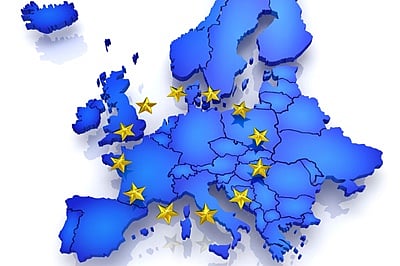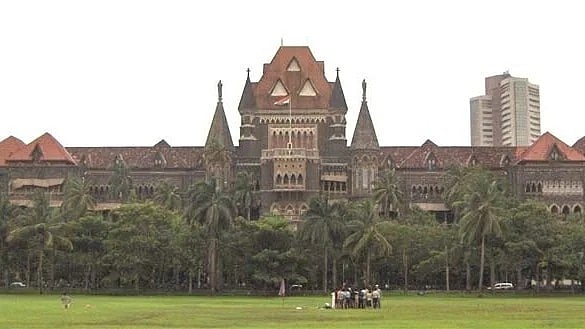As the arguments for and against Britain remaining in the European Union hot up again for this month’s renegotiation of membership terms, I am reminded of something P V Narasimha Rao said in his 1994 Singapore Lecture about the reforms he and Dr Manmohan Singh had pioneered. Answering a question about opposition, he said he had told critics that, yes, foreigners would be able to have a share of the pie, but liberalisation would make the pie much bigger and Indians, too, would get a bite of the global pie.
THE promise (threat for some!) of “ever closer union” with the ultimate goal of creating a “United States of Europe” is repugnant to those who still nurse memories of a time when Britain ruled the waves and the sun never set on the British empire.
That is why, according to a poll carried out by the Financial Times, only 1 per cent of British business leaders favour leaving the EU. Most big businessmen support continued membership which makes it easier for them to move money, people and products around the world. According to Sir Mike Rake, chairman of the BT Group which owns British Telecommunications and a former president of the Confederation of British Industry, there are “no credible alternatives” to staying in. Among the few who disagree, the industrialist, Lord Bamford, believes that leaving the EU would give Britain the freedom to negotiate trade deals for itself “rather than being one of 28 nations”. Many small and medium-sized firms would welcome a reduction in the red tape that is associated with the EU’s Brussles-based bureaucracy and what they see as petty regulations, but a lot hangs on what kind of terms David Cameron, the British prime minister, is able to renegotiate with Donald Tusk, the European Council president. The British Chambers of Commerce says 55 per cent of members back staying in a reformed EU.
But not everyone is a rational entrepreneur. Despite Britain being one of the world’s most successful multiracial societies, the underlying dislike of foreigners (and not just of Afro-Asians) has been aggravated by recent events. A recent poll showed that 52 per cent of respondents were concerned about “control of borders and immigration from the EU” while 42 per cent saw the “benefits EU migrants are eligible for” as the main drawback. The flood of West Asian refugees pouring into Europe and the knowledge that thousands of them are camped at Calais just across the English Channel, waiting for the chance to cross over, have again aroused all the old fears of being swamped. The promise (threat for some!) of “ever closer union” with the ultimate goal of creating a “United States of Europe” is repugnant to those who still nurse memories of a time when Britain ruled the waves and the sun never set on the British empire.
They complained of train classes being adjusted to harmonise with the European continent and of a common standard time. The retention of Britain’s own currency is welcomed as almost a last defence. The Little Englander lobby believes the EU is holding back Britain by imposing too many rules on business and charging billions of pounds annually in membership fees for little in return. The “free movement” which means you don’t need to get a visa to go and live and work in another EU country and is one of the main principles of EU membership seems especially objectionable. There are fears that common EU foreign and defence policies would further erode British sovereignty, and that Britain would cease to exist as an independent nation if an EU Head of State took precedence over the British monarch.
Britain held a referendum in 1975 shortly after it had joined the European Common Market, as the EU’s predecessor was called. The country voted to stay in then but there have been growing calls from public and politicians for another vote because, they argue, the EU has changed a lot over the past 40 years, with many more countries
joining and the organisation extending its control over more aspects of daily life. Mr Cameron initially resisted these calls but in 2013 he changed his mind.
The activism of the UK Independence Party, which won the last European elections, and received nearly four million votes – 13 per cent of those cast – in May’s general election may have been a factor. In 2014 UKIP received a million pounds from the 50-year-old British businessman Arron Fraser Andrew Banks who is co-founder of the Leave EU campaign. While UKIP campaigns for this aim, a fair number of Conservative and several Labour members of Parliament are also in favour of leaving. Officially, however, the Labour Party, like the Scottish Nationalist Party, Plaid Cymru (Welsh nationalists) and the Lib Dems support continued membership. They believe membership makes selling things to other EU countries easier. As for the flow of immigrants, they argue that most of them are young and keen to work which fuels economic growth and helps pay for public services. Despite all the jokes about “Polish plumbers”, these men do a job that the British don’t care for any longer.
There is also the fear that a lone Britain would not enjoy the same global status. It could hardly compare with the 28-member EU which has used its massive weight to negotiate favourable free trade agreements with some 200 countries. It is said that even the United States, with which Britain is proud of claiming as “special relationship”, would pay more attention to Britain as a leading member of a large and powerful European bloc than as a small offshore archipelago. Britain’s prized security relationship with the US is also expected to suffer. In fact, a go-it-alone Britain would be vulnerable to adverse forces and would have to spend much more on individual defence.
Two former Conservative Party leaders, John Major, who was prime minister from 1990 to 1997, and William Hague have already spoken at length of the strategic arguments for remaining in the EU. Mr Cameron has vowed to campaign to remain “with all my heart and soul” if he gets the powers he wants from his renegotiation with the other member states. He has so far refused to say whether he would start calling for Britain to leave if he does not get what he wants from the other EU leaders, saying instead that he “rules nothing out”, but this is probably only the natural caution of a politician who does not want to close any option. He made his own position amply clear at the World Economic Summit at Davos when he pleaded with European business leaders, “If you believe, like I do, that Britain is better off in a reformed European Union, then … help me make that case for Britain to stay.”
Despite their instinctive reservations about Britain and the British, it would be foolish and self-defeating of French and German vested interests not to respond positively to that appeal.
Europe has as much to gain from continued British membership as Britain does from remaining in the EU.









